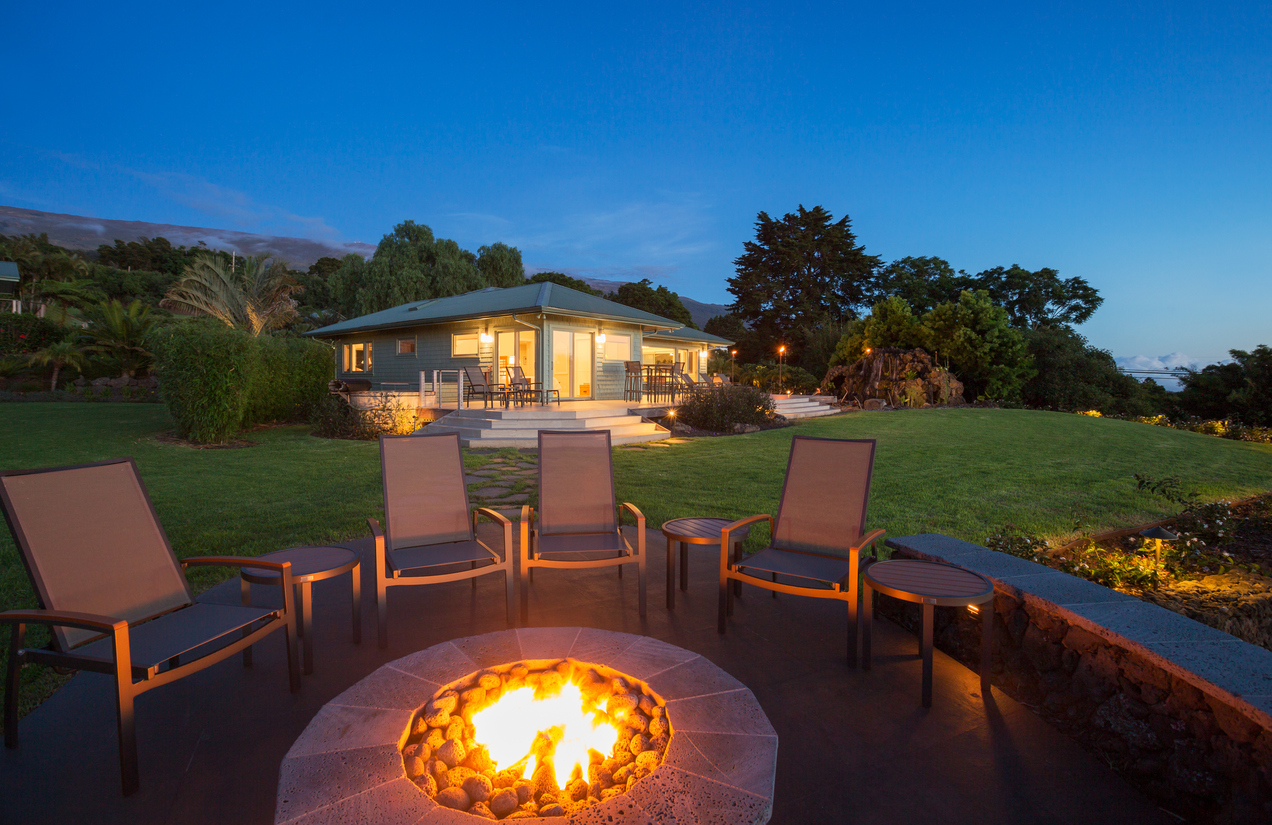
If you plan on purchasing a fire pit or already own one, it’s important that you review fire pit safety to ensure you keep your friends and family safe. This is particular important if you haven’t used a fire pit before since it takes just mere seconds for a comfortable fire to burst into dangerous flames. Below are a few safety tips for your backyard fire pit.
Be Prepared
If you have a screen for your backyard fire pit, use it when you are burning. You should also have a garden hose or bucket of sand ready to handle any wayward sparks. Have a shower-type spray set at “spray” to douse any flare ups. Don’t put your hose on ‘stream’ since this can actually spread the sparks.
Positioning Your Fire Pit
Regardless if you are using a portable fire pit or a permanent one, where you position it is imperative. To stay safe:
- Keep the pit at least 10 feet away from your home or other structure and at least 25 feet away from your neighbors’ yards
- Don’t place your pit under low hanging tree branches or a covered porch
- Place your fire pit on concrete, patio blocks or other non-flammable surfaces
- Don’t put your pit directly on grass or on a wood deck
Use common sense when positioning your fire pit.
Type of Fuel
The most common types of outdoor fire bit fuel are wood and gas. You can also purchase backyard fire pits that allow you to switch between the two. Propane and gas fuel should only be used if your fire pit is built specially for them. Don’t use lighter fluid, gas or any other type of flammable fluid to light a wood fire.
Lighting Your Fire Pit
Before lighting your fire, check the direction of the wind. Remove any downwind flammable items near your pit. Don’t light your pit if it’s too windy. Always use a fire starter stick that has a kindling top or something similar to light your fire; never lighter fluid or flammable fluids.
A backyard fire pit is great to entertain family and friends on a cozy night, but they require serious safety attention. Also, in some areas of the country that are prone to wildfires, you may be required to disclose your pit to your homeowners insurance company. Be sure to speak with an agent at your independent insurance company about your fire pit and any impact it could have on your insurance coverage.